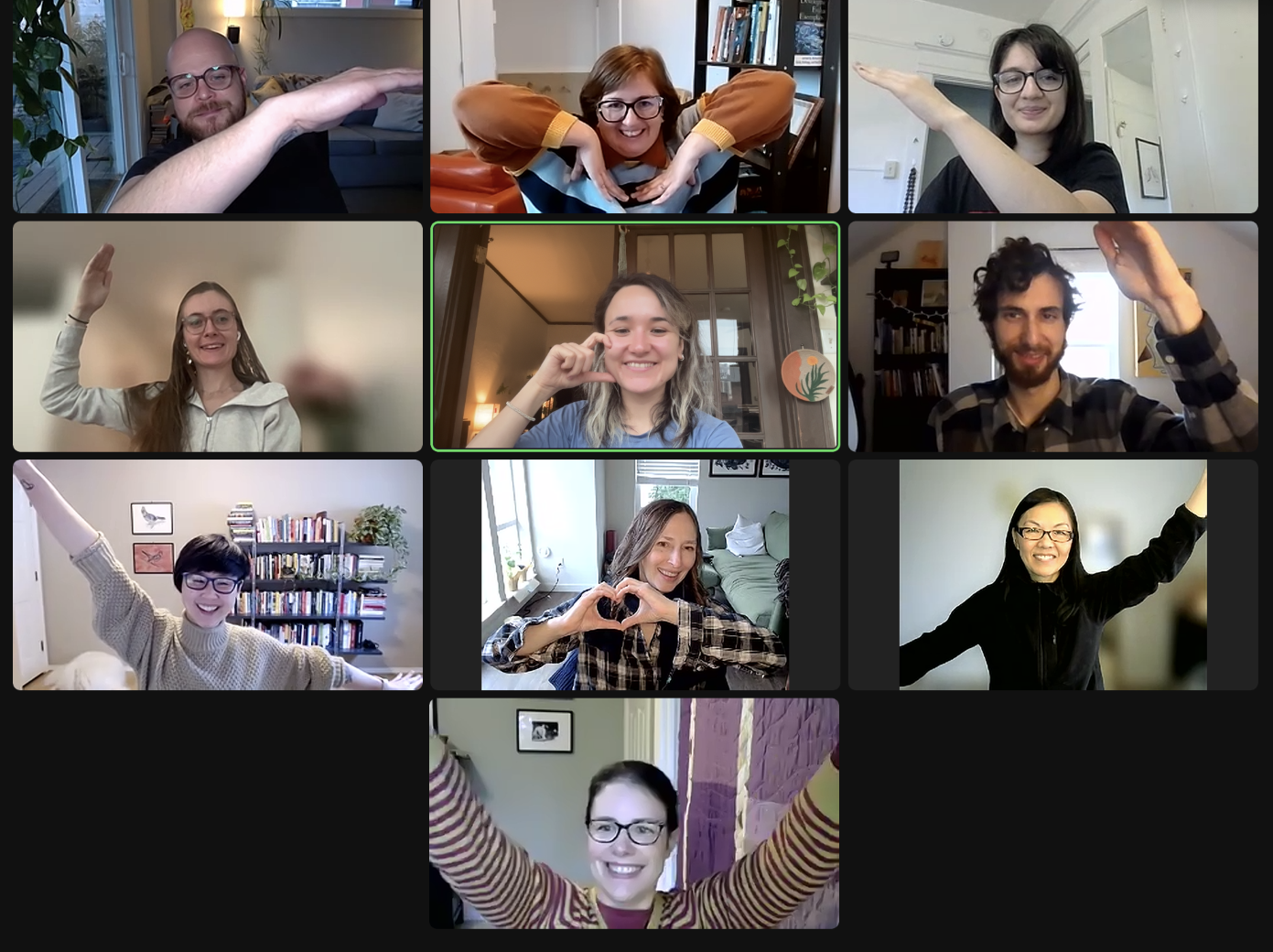About
The mission of the Center for Evaluation & Research for STEM Equity (CERSE) is to promote equity in Science, Technology, Engineering and Mathematics (STEM) higher education through conducting high quality research and evaluation to enhance diversity and inclusion.
Why We Do This Work
We believe that STEM fields should be equitable and accessible to all people, not just people from STEM’s dominant identity groups (who are often white, cis-gender, heterosexual, able-bodied, and/or male identified).
Significant changes must be made in order for STEM fields to be accessible, welcoming, and desirable to individuals belonging to excluded identity groups.
Our program evaluation and research offer evidence-based insights toward reforming systems and improving policies and practices.
CERSE is committed to supporting the Black Lives Matter movement through our words and actions, as individuals and collectively as an organization. We reject and condemn anti-Black racism and white supremacy. We grieve over the numerous Black folks murdered by the police and for communities of color who experience this threat every day. As an organization, our work centers on increasing equity in STEM fields, including racial equity. We recognize that these inequities are at the surface of deep-rooted systems of oppression that will take sustained efforts from many different angles to dismantle. Read more >>
What We Do & How We Do It

Integration of Research, Evaluation, & Consulting
We see research and evaluation as complementary. We take our research-honed skills and knowledge and apply them to our evaluation efforts. In addition, we use our evaluation skills to make our research practical and applied. Our findings lead to recommendations, and we offer consulting to catalyze on-the-ground change.
 Multiple Methodologies
Multiple Methodologies
We choose the right methodologies to fit each individual question, context, and population. We have deep knowledge of quantitative, qualitative, and mixed methods approaches to data collection and analysis, including: survey design and administration, multivariate regression, in-depth interviews, focus group discussions, participant observation, bibliometric analysis, data visualization, and longitudinal outcomes tracking.

Relationships
We care about the people we work with. We establish and foster relationships with them because we respect the work that they do. Our collaborators are both local to Seattle, and non-profits and universities located across the country. Regardless of their location, we build trust and rapport through consistent and engaged contact. Because of our network we can help connect the people we work with to other institutions, people, and resources focused on diversity, equity, and inclusion in STEM.

We Use a Critical Lens
We operate with a critical orientation. This means that issues of social justice inform our thinking and acting. Social justice is central to what questions we ask, how we ask them, what methodologies we use, and how we work with partners to advance equity in STEM.
We recognize that our positionalities (identities, belief systems, and experiences) affect the analyses that we do, and work collaboratively to ensure a broad range of perspectives are considered. We focus on the interconnected nature of social identities such as race, gender, sexual orientation, and socioeconomic class, as we believe they are all in constant conversation with one another in relation to systems of power and privilege.
Our Positionality
We are a team of researchers with complex intersecting identities and experiences. Our positionalities inform and fuel our advocacy for those from systemically marginalized groups in STEM fields. Collectively, we have both privileged and marginalized social identities. We are an interdisciplinary team, with backgrounds in sociology, education, women’s studies, and statistics. The graduate and undergraduate research assistants on our team broaden our social identity pool even more. Ultimately, our backgrounds and social identities inform how we make sense of and share others’ stories. We believe it both essential and responsible to acknowledge the impact of our positionalities on the work we do, while striving to share others’ experiences in a way that most accurately and honestly reflects their truths.
Our Definitions
Equity
Equity is the fair and just treatment of all people. This requires providing critical support to excluded identity groups to combat discrimination, social stratification, and oppression. An equity orientation ensures everyone the opportunity to succeed in STEM.
Excluded Identity Groups in STEM Or Systemically Marginalized Populations in STEM
The term excluded identity groups encompasses all people who are excluded from full participation in STEM fields. This can include, but is not limited to: Blacks/African Americans, Native Americans, Latinx, Pacific Islanders, women, English language learners, newcomers or immigrants to the U.S., LGBTQ people, first generation college students, individuals from low-income backgrounds, and people with disabilities. We recognize that individuals belonging to excluded identity groups in STEM are not defined by only one of their identities, but have intersecting identities. We borrow the term of excluded identity groups from researchers at OU RISE (Walden, Foor, & Trytten, @WEPANCLF2017), because we feel it better expresses the institutional barriers and interpersonal norms that exclude people, and does not focus on “otherness” the way the term “underrepresented minority” does. Based on further conversations about this term at CoNECD 2018, we are considering a shift to Systemically Marginalized Populations, due to concerns about the term Excluded Identity Group.
